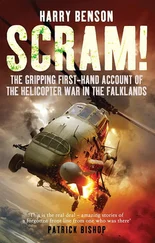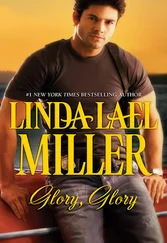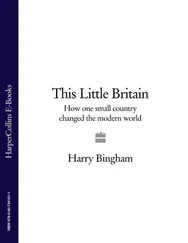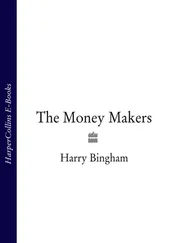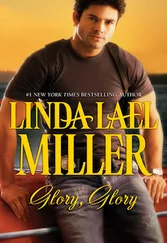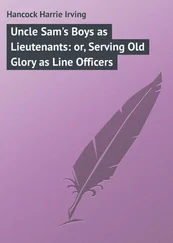The boy looked up, suddenly bold. ‘Oh say, Mr Hennessey, it ain’t carpenting work I want, it’s mechanics. I am good with my hands, even Captain Rockwell said so. It’s all I’ve ever wanted to do, really. There are four auto shops in Brunswick now. I’ll bet one of them needs an apprentice around the place. I could come home every Sunday. I wouldn’t need hardly nothing to live off and Ma could have everything else.’
He stopped abruptly and the storekeeper finished for him. ‘Only your ma wants you to stay at home. She doesn’t like the thought of you heading off to Brunswick.’
The kid didn’t answer, but he didn’t have to. It was the same all over Independence. Ever since Marion had begun its war of attrition against their neighbours up the hill, the town had been dying. Kids left, not to come back. Businesses folded. Farms went under. Hennessey was an Independence man born and bred, but he couldn’t deny that the kid spoke sense. There was no use in trying to hold the youngsters back. They had their own lives to live.
‘I’ll speak to Sal,’ said Hennessey. ‘I expect I can talk her round.’
‘Gee, would you? Gosh, thanks! And I promise –’
Hennessey raised a hand. ‘No promises, Brad.’ He hesitated. Under the counter, he’d kept a newspaper from a couple of months back. The newspaper had contained an item about the inaugural Miami–Havana mail flight, about Captain Rockwell and his new airfield in the south.
‘Autos. That’s your thing, huh?’
‘Oh sure. You know Captain Rockwell started out as a racing car mechanic. One day, I’d love to do that, but meantime
‘How ’bout airplanes, Brad?’
‘Airplanes?’
The air turned still. The silence turned holy.
Hennessey produced the paper. ‘Now don’t you dare tell your ma I showed you this. It ain’t autos, Brad, but if you don’t mind slumming it, there’s a guy working down in Miami who might have a job for the likes of you.’
He handed over the newspaper. The kid read the article, his eyes shining.
‘Gee, Mr Hennessey, do you really think he’d –?’
‘I’ve no idea. You’d best ask him that yourself. And, listen up, Brad, mind you don’t tell him I said you go see him.’
‘I shouldn’t?’
‘No, son, better not.’
The kid looked back at the newspaper, doubtfully. ‘But, you know Mr Hennessey, Miami’s a whole lot further than Brunswick…’
Hennessey suddenly felt bad about doing what he’d just done. He couldn’t have said why, but he felt like he was a man betraying a trust. He grabbed the tall glass jar of candy, tipped some out into a brown paper bag and thrust the bag over the counter, restoring the jar to its place on the shelf with his free hand.
‘I’ll speak to your ma. I’ll ask her about Brunswick. I won’t say anything about Miami, let alone airplanes. If you choose to jump on the eight o’clock freight train when it slows down just this side of Williams Point and ride it all the way down to Miami, then that wouldn’t really be my business now, would it?’
A couple more customers came into the shop, one of them Jeb Gibbs, a seventy-five-year-old man whose sweet-tempered moonshine whiskey had kept him one of the wealthiest men in town for as long as anyone could remember. Gibbs was a customer Hennessey did a lot to keep sweet. The storekeeper greeted the newcomers and flashed a last glance at Lundmark. The kid had grabbed his bag of candy and stood with it held against his chest like something precious.
‘Williams Point, huh?’ he breathed.
‘I’ll talk to her,’ said the storeman, ‘but no promises.’
The kid left. Hennessey watched him all the way into the dazzle of the street and the deep indigo shadows of the further side. He hadn’t done anything so bad, had he? And if he hadn’t, then how come he felt like such a louse for doing it?
The weekend was everything that Willard’s life once used to be and now wasn’t.
Although he carried twelve hours’ worth of paperwork in his briefcase, he touched none of it. Deliberately choosing to ignore the difficulties that hemmed him in, he didn’t think about his debts, didn’t think about Powell Lambert, didn’t think about his future. Instead, he did all those things he had once taken for granted. He played tennis, sailed and swam. He was outgoing, charming and easy. He didn’t ‘score a confirmed hit’, as he expressed it to his eldest sister, Lucinda, but he ‘winged one or two machines, for sure’ – his phrase for petting that stopped just short of the bedroom door.
‘One or two?’ she teased him. ‘You don’t know?’
‘Two then.’
‘Must have been some very slow machines then. Slow and ugly.’
He laughed. ‘Fast and pretty. And exceptionally keen for me to call on them in New York.’
But all too soon the weekend ended. On Sunday evening, as the light began to ebb, Willard found himself on the station platform with his father. The train, headed by a steam locomotive painted a sombre black and purple, groaned its way into the station. The two men, travelling first class, found a compartment empty but for one other traveller, a man absorbed in his leather-bound Bible.
Willard, who always found time alone with his father awkward, was relieved at the third man’s presence. The two Thorntons settled into seats opposite each other. The older man produced some business papers, and began to read. Willard, loathing the thought of touching any of his hated paperwork, reached his bag down arid did so anyway. The train lurched off into the twilight.
The silence in the compartment and the clattering darkness outside began to knit together in one clotted mass. The thoughts Willard had kept at bay all weekend began to swarm in on him: his debts; his lack of prospects; the hopelessness of his situation. He also thought about those other things: the man whose death had been so conveniently timed, the Irish rabbis, Willard’s strange but beautiful burglar. Without premeditating his action, he dropped his papers and said, ‘Father?’
Junius Thornton and the other traveller lowered their reading matter at the interruption. Then the Bible-reader rose, claimed his bag from the rack, and left the compartment. On the way out, he gave Willard a look which implied that if speaking on a Sunday weren’t illegal, then it certainly ought to be. Junius Thornton stacked and bookmarked his papers, but didn’t put them away, as though to suggest that any break in the silence were only provisional.
‘Yes?’
Willard didn’t know what he intended to say. If he could have undone his first impulsive exclamation, he would have. But since he had now to say something, he said the first thing that came into his head.
‘You know Powell fairly well, I think.’
‘Certainly.’
‘And you’d trust him, of course? I mean, you don’t believe he’d do anything that a gentlemen shouldn’t?’
Junius Thornton stared at his son. The older man’s thick features were hard to read at the best of times; still harder in the moving carriage and the uncertain light. ‘I believe Powell to be a reliable man, yes. Am I to know what makes you ask such a peculiar question?’
‘Oh nothing!’ Willard threw himself back in his seat, annoyed at himself for asking. ‘Just one or two odd things have happened lately. Things Powell might not have liked if he’d known about them.’
Junius Thornton continued to examine his son, waiting to see if any further explanation was forthcoming. It wasn’t. The old man shrugged slightly. ‘Powell likes money. He likes it very much. As far as I know, that’s the only thing he likes.’
Willard stared sulkily from the window. ‘Well, it’s a good job he runs a bank then.’
Читать дальше


